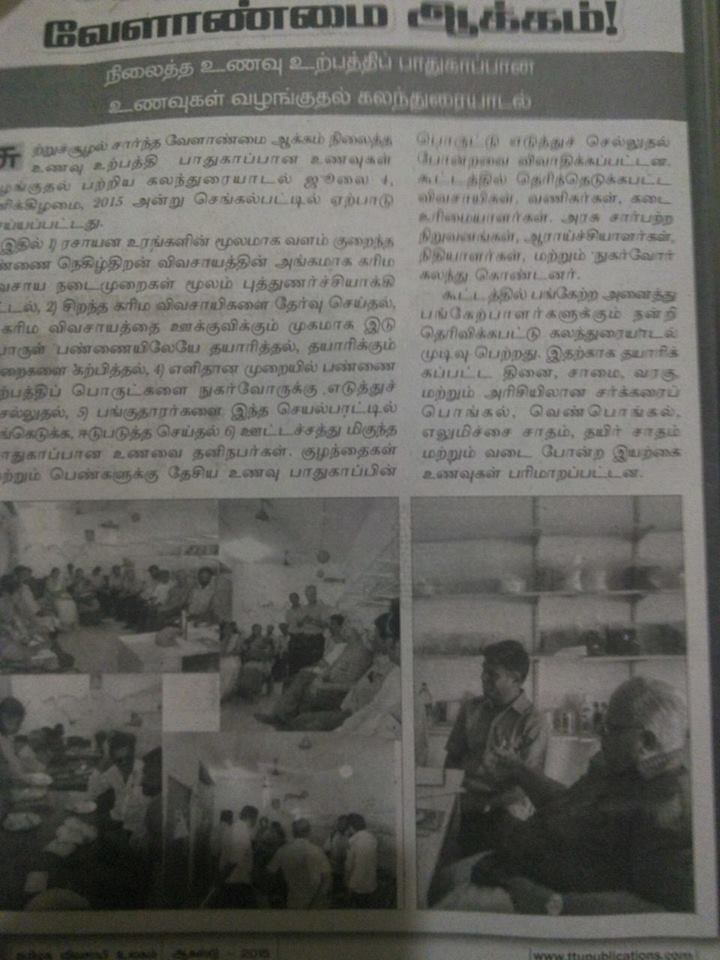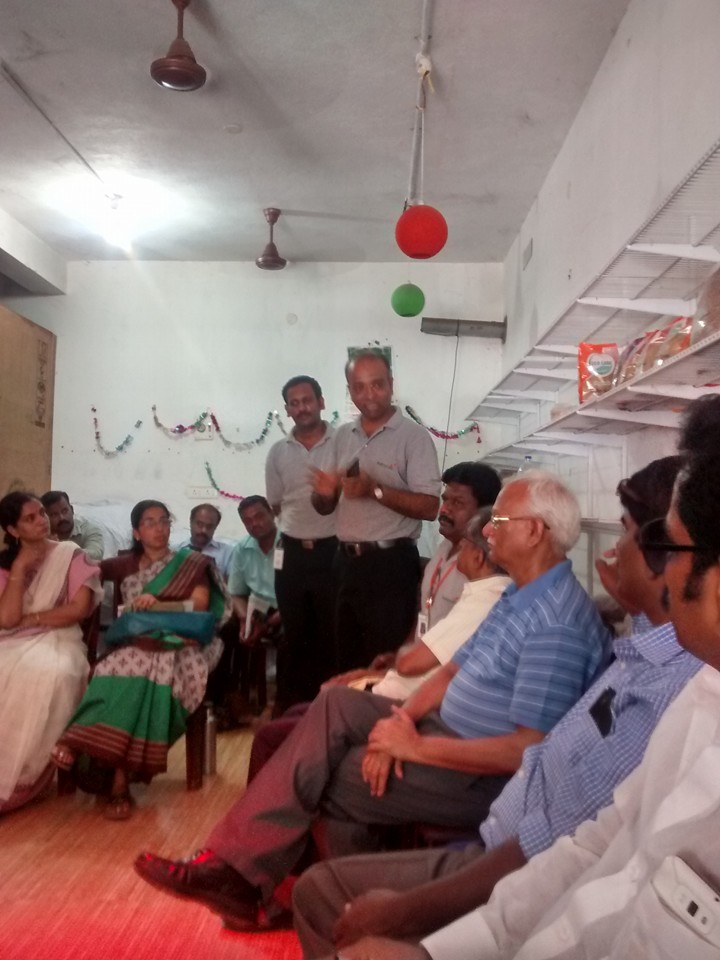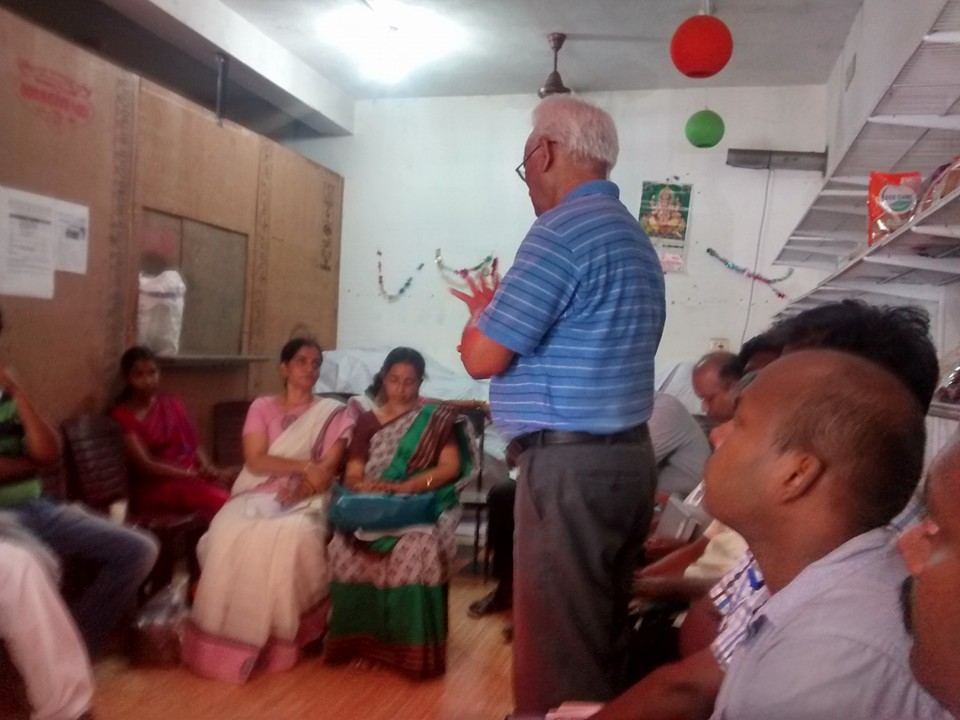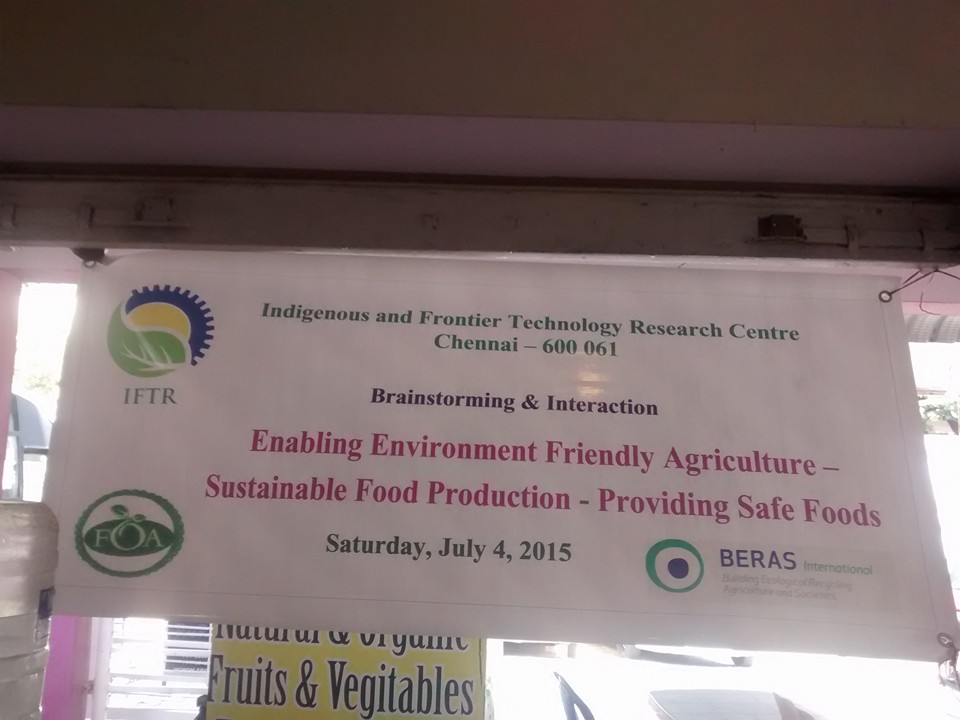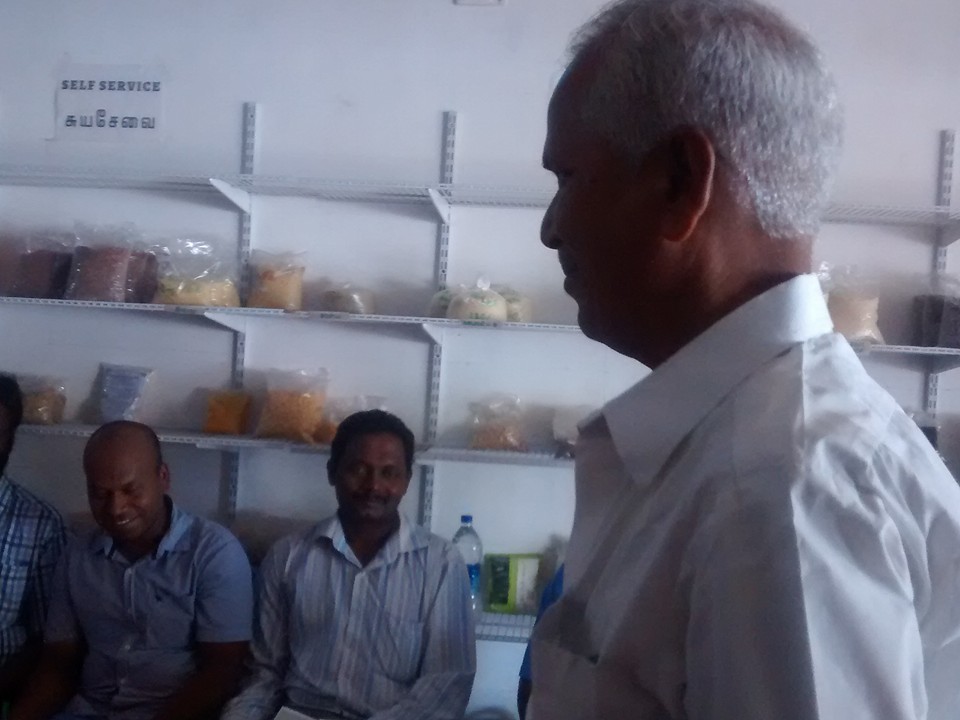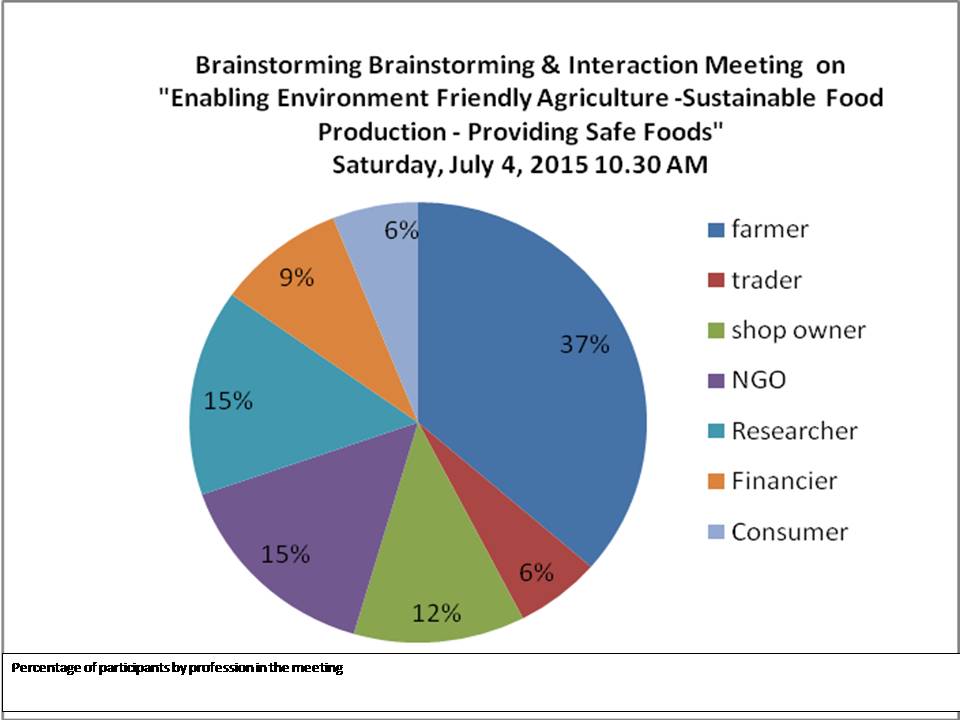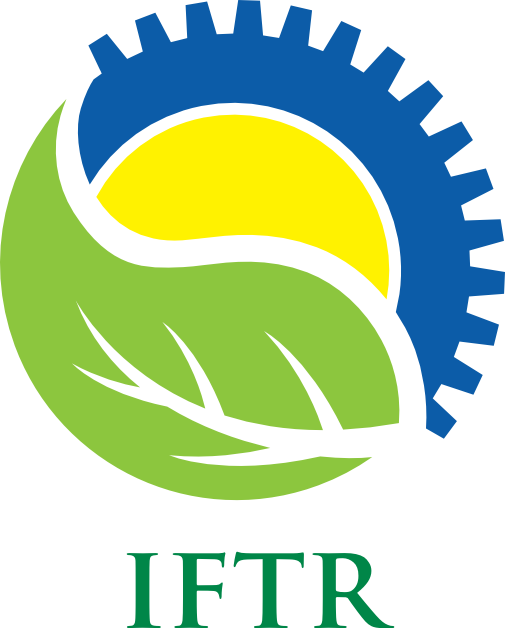 Indigenous and Frontier Technology Research Centre IFTR
Indigenous and Frontier Technology Research Centre IFTR
Design, Develop and Disseminate technologies for the masses
Enabling Environment Friendly Agriculture –Sustainable Food Production - Providing Safe Foods
A Brainstorming & Interaction meeting on Enabling Environment Friendly Agriculture –Sustainable Food Production - Providing Safe Foods was organized Saturday, July 4, 2015 to discuss the Modalities and pathways for implementing, 1) the concept of resilient agriculture for rejuvenating degraded soils using organic agricultural practices, 2) selection of prospective farmers, 3) techniques for on farm input production for promotion organic agricultural practices, 4) eamless transfer of farm gate products to consumers, 5) involvement of stakeholders in the process of implementation, 6) taking safe foods to individuals, children, women for food and nutritional security.
The meeting was attended by selected farmers, traders, shop owners, NGOs, researchers, financiers, and consumers.
The following were the outcome of the discussions held on the above.
1) Farmers were very much interested in getting their soils analyzed for nutrients in soil especially macro and micro elements
2) Farmers, Traders and shop owners were very much interested to get the products analyzed for pesticide or herbicide residues. All were of the opinion that all the products needs certification and all were of the opinion that Participatory Guarantee System (PGS) can be a starting point to establish a cost effective certification for the farmers.
3) Farmers preferred to know what kind of inputs can be applied in soils. Some farmers were worried about the qualities of Panchagavya like inputs sold in the market, especially the availability of pathogenic bacteria. Most of them opined that it is best to prepare their own inputs and apply to their soils. In case of non availability they can look for manures with analysis parameters for heavy metals and other impurities. Some of the bio inputs that can be prepared by farmers are Jevamrit or amirtha karaisal, ainthilai karaisal, Effective microorganisms, attoottam, etc. practiced widely by others.
4) Some farmers felt the need for organizing labour force to take care of farming operations as now a day it is becoming difficult to get labourers. While the use of mechanization was discussed some were of the opinion that it’s the options to be adopted in the following days.
5) Most of the traders felt the need to identify the source of the products for which a data bank has to be maintained by the supplying agencies. As fallout of this discussion, all the participants felt the need for creating a common hub where data on the farmers are maintained, where farmers can visit often to get advice, where trades can interact with farmers. Some traders preferred the hub to pack the products and supply in a ready to sell form as the real estate and manpower cost has become expensive for them to engage large area and manpower in cities like Chennai.
All participants acknowledged that they will interact with one another in future and work in close proximity if a hub is formed in a common place.
Takeaways
- Organic farming in farm level as well as food plate is still at infancy
- In the present scenario of food adulteration, adoption of safe food is a big requirement for consumers
- Consumers are not fully aware of consuming safe food, know what safe food is and are confused when it comes to choosing right food
- Both farmers and consumers need education on safe foods
- Farmers need education / training on preparation of bio inputs especially indigenous methodologies that provide better solutions for obtaining higher yield.
- Education is needed to convert more farms to safe food production
- Education and demonstration on economics and merits of ecological regenerative agricultural models are required to be set up in different agro climatic zones, different crops, cropping patterns to infuse confidence in the minds of farmers
- Farmers sell their produce to traders and Govt. Later take their staples from ration shops / local shops and vegetables and milk from vendors. They don't process their own food / or have the wherewithal to process their own produce.
- Transfer / sale of foods locally is important than sending to far off places - includes vegetables, staples and milk. Vegetables, eggs and meat travel for more than 600-800 km
- Women, Children are not aware of balanced, nutritious, local food. Children and women need education at large.
- Schools / establishments need education on the concept of good safe food.
12. No campaign or programme is there for this except - noon meal scheme run by respective state Governments that satisfies only basic requirement.
